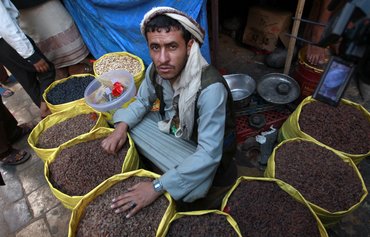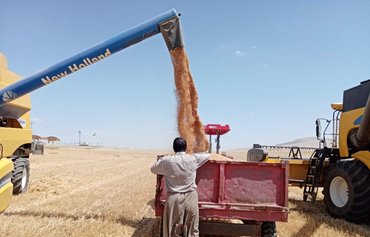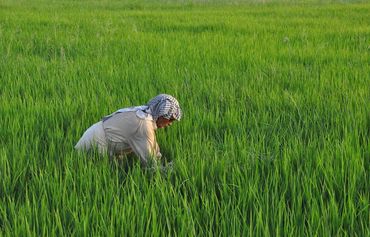The Iranian regime and its agents are engaging in economic warfare in Iraq, specifically in the agricultural sector, Iraqi farmers and security experts say.
One aspect of the economic sabotage involves the inflow of Iranian agriculture products into Iraq, despite US sanctions imposed on Iran in August 2018, and Iraq's commitment to uphold the sanctions as a way to protect its own interests.
Iraqi farmers and agribusiness owners are complaining of Iranian crops swamping local markets, especially vegetables, even though the Iraqi Ministry of Agriculture has banned Iranian agricultural imports.
"We are facing a conspiracy as there are influential parties [with ties to Iran] that do not want the agricultural sector in Iraq to flourish and instead want to disadvantage Iraqi famers in general," a farmer from Baghdad who requested anonymity told Diyaruna.
"We are putting in a lot of money and effort in planting our crops, and in the end, Iranian crops flood in and deprive us of our livelihoods and leave us with nothing but despair," he said.
High quality Iraqi produce cannot compete with the low prices of Iranian fruits and vegetables.
"We usually have to sell our produce at production costs so as to avoid losses," said Abu Hassan, another farmer in Baghdad.
"In spite of our losses, we cannot compete with prices of Iranian produce which is essentially of poor quality, but there is high demand for low prices," he told Diyaruna.
A suspicious coincidence
The flooding of Iraqi markets with Iranian goods coupled with plant epidemics in Iraq strike some as an unlikely coincidence.
For example, at the beginning of the year, there was an unknown plant epidemic that affected thousands of dunams of tomato plantations in Basra province.
"During tomato harvest, farmers in Iraq are suffering from heavy losses every year because of the Iranian fruits and vegetables supply, especially tomatoes, whose taste and colour is nothing compared to Iraqi tomatoes," farmer Jassem Hussein told Al-Khaleej Online.
"Flooding the Iraqi market with fruits and vegetables during harvest season is a policy aiming to weaken the Iraqi economy and destroy Iraqi agriculture," he said.
Wheat and barley fields also are affected.
Fingers are not only pointing to the "Islamic State of Iraq and Syria" (ISIS) for causing fires that destroyed more than 16,000 hectares of farmland cultivated with grain crops, but also Iran-backed militias with the goal of ensuring "Iraq remains an importer of food, particularly from Iran, and can never reach food security", strategy expert Alaa al-Nashou said.
The fires dashed Iraq's hopes of raising the local annual wheat production to 4.5 million tonnes, which is double the annual production from previous harvests thanks to abundant rainwater during last year’s winter.
"Iranian [militias] are implicated in all the crises that have plagued Iraq, since there is evidence of culpability in cases of arson as well as poisoned rivers and the spread of agricultural pandemics," al-Nashou said.
Protecting Iraq's national interests
Iran's role in destroying the Iraqi economy is clear, said Ghazi Faisal Hussein, an adviser at the Iraqi Centre for Strategic Studies.
"The Iranian strategy is based on depleting the resources of other nations and taking control over their economic outputs, which ultimately results in hegemony and interference in the decision making process," he told Diyaruna.
Through this strategy, Iran managed "to undermine [Iraqi] national plans and programmes for development, reconstruction and agricultural reclamation, resulting in hardship for farmers and livestock breeders as well as adverse effects on the agriculture and food sector in the country as a whole", he said.
Iraq's reliance on food imports from Iran alone increased to $6 billion per year, he said.
"The effect of such a strategy has impacted all sectors of the [Iraqi] economy, not only agriculture," he added.
"Iran is using any means possible to enter the Iraqi market for the purpose of circumventing the economic sanctions that have burdened its economy," said economist Basem Jamil Antoine.
This is evident through the growing volume of trade between the two countries, which has increased to more than $13 billion dollars since last year.
"We have to take into account our national interests and protect our agricultural production by banning random imports and imposing high trade tariffs on goods entering the country," he said.

![Farmers from Karbala province collect their wheat harvest to sell to government grain warehouses in May 2019. [Photo courtesy of the Iraqi Ministry of Agriculture]](/cnmi_di/images/2019/06/20/18553-iraq-farmer-crops-600_384.jpg)






